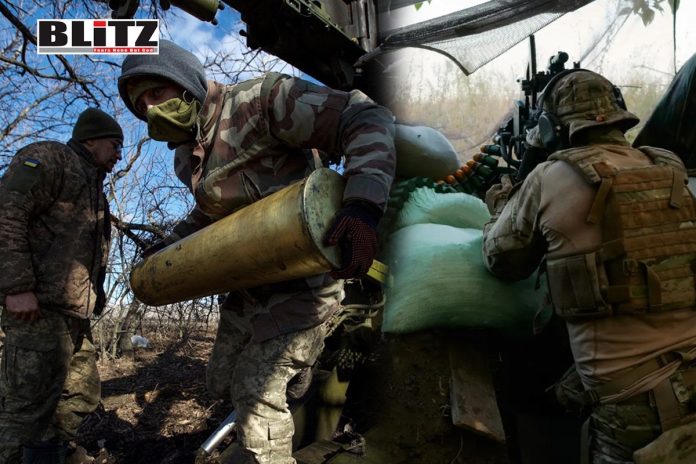Following the eruption of the Ukraine battle, the geopolitical panorama throughout the post-Soviet house has undergone profound transformations. Nations previously beneath Soviet dominion, akin to Uzbekistan, Kazakhstan, and Georgia, are navigating a posh internet of pursuits involving Russia, the West, and rising international actors. Choosing paths of neutrality, these nations interact in strategic maneuvers knowledgeable by financial interdependencies, safety imperatives, and ambitions for enhanced connectivity and prosperity. Their actions replicate a fragile balancing act, the place geopolitical realities intersect with nationwide aspirations, shaping the trajectory of the area’s geopolitical dynamics.
Located in Central Asia, Uzbekistan stands as a quintessential instance of this intricate balancing act. Traditionally entwined with Moscow, Tashkent has adeptly fostered amicable ties with Russia whereas broadening its financial alliances. The imposition of Western sanctions on Russia posed each challenges and alternatives for Uzbekistan. The nation, closely reliant on Russian high-tech imports, witnessed a surge in commerce with states implementing sanctions on Russia, rising as a pivotal logistics middle. Moreover, Uzbekistan has actively engaged with the EU, navigating constraints whereas in search of avenues for cooperation, notably in areas akin to local weather change mitigation and the event of logistics infrastructure. This dynamic interaction underscores Uzbekistan’s strategic maneuvering in a quickly evolving geopolitical panorama.
Equally, Kazakhstan, a key actor in Central Asia, has adeptly navigated its relationships with each Moscow and the West. Regardless of Western apprehensions concerning its allegiances, Kazakhstan has exhibited no indicators of estrangement from Russia, cultivating sturdy financial bonds whereas tactfully accommodating Western sanctions. Its pivotal function in vitality export routes highlights its enduring partnership with Russia. Nonetheless, Kazakhstan is actively pursuing Western help in expertise, schooling, and media to fortify its financial system and counterweigh Russian affect, illustrating its nuanced method in balancing between regional powers and international actors.
Within the South Caucasus, Georgia’s geopolitical stance mirrors its delicate standing as a small state aspiring for European integration. Regardless of refraining from implementing financial sanctions on Russia, Georgia stays resolute in its aspirations to accede to the EU and NATO. Nevertheless, inner rifts exacerbated by the Ukraine battle, akin to the continuing debate over international brokers laws, underscore the complexities of navigating between Western aspirations and Russian issues. Georgia’s endeavors to broaden its partnerships with impartial nations, notably within the Center East, underscore its pursuit of financial growth and safety diversification past conventional alliances. This multifaceted method displays Georgia’s strategic adaptability amidst evolving regional dynamics.
Amidst the intricate geopolitical panorama, the battle in Ukraine has spurred post-Soviet states to foster recent alliances and strengthen current bonds. The trans-Caspian worldwide transport route has emerged as a pivotal conduit bridging Europe and Asia, facilitating financial integration and lessening reliance on Russian infrastructure. Initiatives such because the trilateral railway endeavor involving Kyrgyzstan, Uzbekistan, and China illustrate the area’s dedication to augmenting connectivity and broadening commerce horizons. These endeavors signify a concerted effort amongst regional actors to navigate geopolitical shifts and foster sustainable financial growth.
Moreover, tender energy diplomacy has surfaced as a pivotal instrument for post-Soviet nations endeavoring to increase their affect and alleviate nice energy tensions. Platforms such because the British-Uzbek Society and comparable boards supply avenues for cultural interchange and joint endeavors, nurturing mutual comprehension and collaboration. Collaborative efforts with Western counterparts on important issues akin to local weather change not solely deal with international challenges but additionally bolster diplomatic relations and foster enhanced financial cooperation. This strategic utilization of soppy energy underscores the area’s dedication to navigating geopolitical complexities by means of dialogue and cooperation.
Nevertheless, persistent challenges confront post-Soviet states amidst the intricate geopolitical terrain. The shadow of Russian affect casts a major pall, particularly in vitality and safety realms, presenting quandaries for nations aspiring to uphold sovereignty whereas fostering amicable ties with Moscow. Inner rifts and exterior pressures compound the complexities of pursuing an autonomous trajectory, emphasizing the nuanced equilibrium these nations should obtain amidst competing pursuits. Navigating this intricate panorama calls for adept diplomacy and strategic maneuvering to safeguard nationwide pursuits whereas preserving regional stability.
The battle in Ukraine has essentially altered the geopolitical panorama of the post-Soviet area, compelling nations akin to Uzbekistan, Kazakhstan, and Georgia to reevaluate their strategic aims and partnerships. Regardless of nurturing pleasant ties with Russia, these nations are progressively turning their gaze in the direction of the West and different impartial actors to grab financial prospects, guarantee safety ensures, and broaden diplomatic involvement. With a mix of pragmatism and foresight, post-Soviet states navigate these complexities, aspiring to outline a singular place in an ever-changing international area, the place adaptation and strategic maneuvering are crucial for sustaining relevance and stability.
👇Comply with extra 👇
👉 bdphone.com
👉 ultraactivation.com
👉 trainingreferral.com
👉 shaplafood.com
👉 bangladeshi.assist
👉 www.forexdhaka.com
👉 uncommunication.com
👉 ultra-sim.com
👉 forexdhaka.com
👉 ultrafxfund.com


